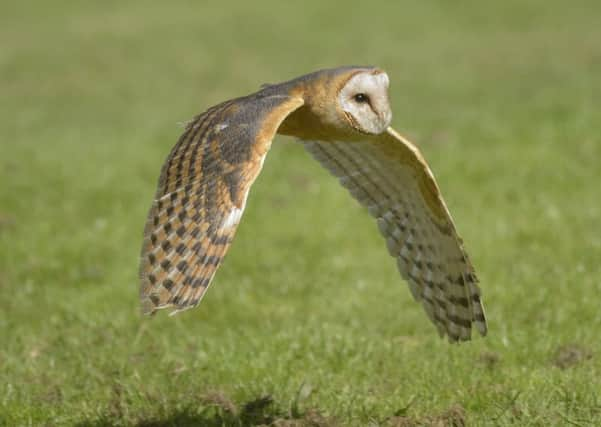Chancellor told to address countryside's fragile state


Rural insurer NFU Mutual sounded the warning as its experts urged the Government to introduce more helpful fiscal measures for farmers who are continuing to suffer from low commodity prices.
The Chancellor should also use his announcement to adjust Treasury funding of the Landfill Communities Fund, the Yorkshire Wildlife Trust said, so that communities can help address major wildlife declines.
Advertisement
Hide AdAdvertisement
Hide AdNFU Mutual also said a cut to VAT would provide a much needed boost to consumer spending, rural businesses and tourism.
The Chancellor of the Exchequer, Philip Hammond, will present his first Autumn Statement to Parliament on Wednesday.
Ahead of the announcement, Tim Price, rural affairs specialist at NFU Mutual, said: “Low commodity prices are making it difficult for many farmers to make ends meet so measures to help their businesses through these times would help boost the rural economy and help young people get into agriculture.”
Mr Price pleaded for the Chancellor to consider the effects on the countryside of any measures designed to curb the use of diesel-powered vehicles, saying: “While diesels are being blamed for pollution in city centres, calls for extra tax on these vehicles or a rise in duty on Diesel fuel could unfairly hit country people who use Diesel powered 4x4s and pickup trucks to farm and keep the rural economy going.”
Advertisement
Hide AdAdvertisement
Hide AdYorkshire Wildlife Trust has contacted all of Yorkshire’s 47 MPs to ask them to urge the Treasury to consider an increase of its funding for the Landfill Communities Fund.
It is funded from the diversion of tax paid on landfill waste to local communities as compensation for living near a waste site, but the Fund was last year decimated by £17m due to a reduced level of tax being diverted into the long-running scheme.
The Trust has called for a six per cent tax “diversion” rate to be reinstated.
Louise Wilkinson, the charity’s conservation policy and campaigns manager, said: “At a time when so many other sources of funding available to local communities has been lost the reduction in the Landfill Communities Fund will have serious implications to local communities and wildlife.
Advertisement
Hide AdAdvertisement
Hide Ad“The Fund is one of the few remaining sources of funding for nature’s recovery which is vital given that we know from the State of Nature report that 56 per cent of UK species are in decline.”
She said the Fund is an essential lifeline for many community and environmental projects which would otherwise not happen.
In North Yorkshire funding from Cemex through the Fund enabled the Trust to improve access to Bolton-on-Swale Lake Nature Reserve near Catterick; funding from Biffa Award through the Fund saw nest boxes installed for rare barn owls in South Yorkshire; and in Driffield, money from WREN via the Fund helped the Trust buy land next to the River Hull in order to support species such as otters, barn owls and lapwings.